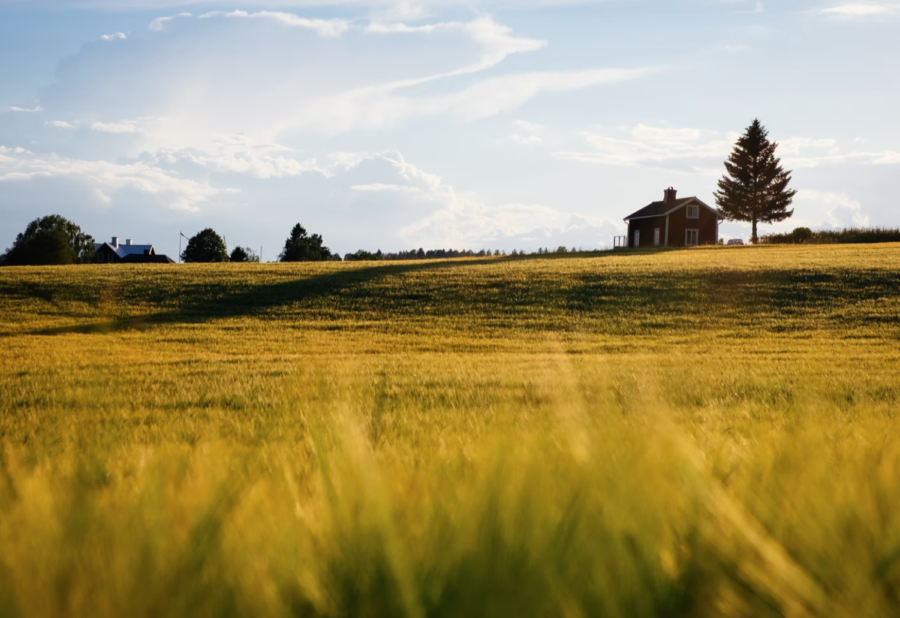Feminist Friday discussion focused on gender roles on family farms
November 14, 2021
The concept of farm family dynamics affects some Iowans every day. This was the focus of the Nov. 12 Feminist Friday Discussion lead by Andrea Rissing with her presentation, “Reproducing our food system: Expert perspectives, gendered labor and the makings of on-farm childhood.”
This presentation opened with Andra Castle, assistant director of the Margaret Sloss House, introducing the presentation, stating that Rissing is a cultural anthropologist who holds a doctorate from Emory University, and that Rissing presently works as a postdoctoral scholar with a focus in environmental lab. Rissing began her presentation by stating the main goal and thesis of the day’s discussion and outlining the ongoing research her and her colleagues have put into the subject of family farms.
“The thesis of this talk is that social issues are farm issues, and that means that supporting family farms and beginning farmers and women farmers, means paying attention to issues beyond farm fields and bookkeeping,” Rissing said. “Support and investment and recognition of challenges shouldn’t end at the farmhouse door.”
Rissing then told a story of a young farm couple named Charlie and Karissa. The story emphasized this family’s struggles on their company Toby Rice farms, with an unplanned baby and trying to financially and emotionally support themselves and their child while also running a farm.
“Hopefully we can get to the point where it’s stable because right now it’s constantly, if you make one mistake, and we don’t want her to have that pressure, so I think that that’s hard, too. To know that you make one mistake, you could lose it all,” Karissa said.
At the close of the video, Rissing proceeded to begin a discussion on the three bodies of scholarship relevant to this discussion. The first body being farm persistence literature.
“The USDA, the economic research service tracks net farming incomes every year and there’s many years where the average U.S. farm actually loses money, and they have a net income that’s negative, and if we are following classic economic theory, that would say unprofitable businesses should go out of business,” Rissing said. “They shouldn’t exist, but farm families are still around. The family farm is this really stable continuing unit of production.”
Rissing followed this by discussing the second body of scholarship, gendered labor on farms- specifically the often unrecognized contribution of women. Rissing highlighted that it wasn’t until 2017 that farms could have more than one recognized operator.
“From working on the farm, to making additional income, to keep the farm afloat, to running chicken houses, to socializing farm kids in, to how to work hard, to keeping baby piglets alive and actually running tractors,” Rissing said. “ Women’s labor is and has always been really crucial to farms.”
The final body of scholarship Rissing mentioned was finding work-life balance in the U.S.
“So, just like their husbands, these women would be pursuing challenging, rewarding careers, but then when they came home in the evening, they still had to do the heavy lifting of child care, housework and food prep as well.”
Rissing elaborated with research findings that women ended up working more than a month more than their husband over the course of a year. Rissing proceeded to highlight a list of case studies on the subject of farm families. Rissing mentioned that much of this research does not always show up when discussing how to support farm families in the U.S.
“86 percent of those representative resources made no mention of childcare aspects of farming,’’ Rissing said. “So this indicated to us this kind of sharp tension between the role of children and childcare being this really important thing that’s fundamental to understanding how farms work, but missing from a lot of conversations.”
Rissing’s next point was on affordability, availability, quality and philosophy of childcare.
“A first generation farmer is somebody like Charlie and Karissa, who didn’t grow up on a farm, and are trying to start their own farm from scratch and a multi-generation farmer is somebody who did grow up on a farm and is transitioning to the leadership role from probably their parents,” Rissing said. “Over half of each of those groups said that they experienced problems with childcare, especially first generation farmers.”
Rissing then discussed three pathways of influence on childcare to farm structure and layout, the social, the economic and the cognitive, as well as how these affect the assumed future of the farm.
“Our interviewees also expressed cognitive stress around childcare because they didn’t know what their children’s futures orientations to the farm would be, if the kids would want to be involved in it or not. So our interviewees fully recognize that their kids may or may not want to take over the farm or that may or may not actually be a viable possibility for them in the future,” Rissing said. “Without knowing that, without some certainty on that question, they didn’t have confidence in how to plan for their farms growth.”
Rissing mentioned that they are actively in their fourth stage of research, which is interviewing and getting experts’ perspectives on the issue. Rissing closed with a discussion that allowed the audience to ask questions or share experiences.







